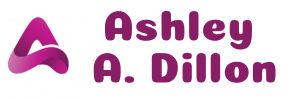Decoding the Labels: Finding the Right Fit for Your Independent Career
In the dynamic world of independent work, choosing the right label for your services can feel surprisingly significant. Are you a freelancer taking on various projects or a consultant offering expert advice and strategic solutions? While there can be considerable overlap, understanding the nuances between these terms can influence how you market yourself, the types of clients you attract, and even your overall career trajectory. This post will delve into the key distinctions between consulting and freelancing to help you determine which title best reflects your professional identity and aspirations.
Understanding the Core Definitions
At its heart, freelancing typically refers to individuals who offer their skills and services to multiple clients on a project-by-project basis. Freelancers often work on specific tasks or deliverables, and their engagements can range from short-term assignments to longer, ongoing collaborations. Think of a web designer creating a website for a small business, a copywriter crafting marketing materials, or a proofreader polishing a manuscript. The emphasis is often on the execution of a particular skill or trade.
Consulting, on the other hand, generally involves providing expert advice, strategic guidance, and problem-solving solutions to organizations or individuals. Consultants are often hired for their specialized knowledge and experience in a particular field. They analyze situations, identify challenges, and recommend courses of action. Examples include a management consultant helping a company improve its efficiency, a technology consultant advising on software implementation, or a strategy consultant assisting with long-term planning. The focus here is more on analysis, strategy, and providing recommendations.
Key Distinguishing Factors
While the lines can blur, several key factors can help differentiate between freelancing and consulting:
- Nature of Work: Freelancers are often hired to do a specific task, while consultants are typically engaged to advise on what should be done and how.
- Project Scope: Freelance projects can be quite varied and task-oriented. Consulting engagements often involve a deeper dive into a client’s challenges and may encompass broader strategic initiatives.
- Client Relationship: Freelancers often have a more transactional relationship with clients, focused on delivering the agreed-upon work. Consultants often develop a more advisory and collaborative relationship, acting as a trusted advisor.
- Expertise Level: While both freelancers and consultants need expertise, consulting often implies a higher level of specialized knowledge, strategic thinking, and experience within a particular industry or domain.
- Pricing Structure: Freelancers often charge by the hour or per project. Consultants may also use these models but can also employ value-based pricing, where fees are tied to the potential return on investment they bring to the client.
- Marketing and Branding: The choice of label can influence how you market your services. “Freelancer” might appeal to clients looking for specific skills, while “consultant” might attract those seeking expert guidance and strategic solutions.
Which Path Is Right for You?
The decision of whether to call yourself a consultant or a freelancer ultimately depends on the nature of your work, your expertise, and your career goals. Consider the following questions:
- What do you primarily offer? Is your focus on executing tasks or providing strategic advice?
- What kind of relationships do you build with clients? Are you primarily delivering a service, or are you acting as a trusted advisor?
- What is your level of expertise and experience? Do you possess deep knowledge and a proven track record in a specific area?
- What type of clients are you trying to attract? Are you targeting individuals and small businesses for specific tasks or larger organizations for strategic guidance?
You might also find that your work incorporates elements of both freelancing and consulting. For example, a freelance web developer might also offer consulting services on website strategy and user experience. In such cases, you might choose the label that best represents the core of your services or the type of client you most want to attract.
The Power of Perception
Ultimately, the terms “consultant” and “freelancer” carry different perceptions. “Consultant” often suggests a higher level of expertise, strategic thinking, and a more significant investment from the client. “Freelancer” can be seen as more accessible and focused on specific skill execution. Consider the image you want to project and how each term aligns with your brand and the value you offer.
By carefully considering the distinctions outlined above, you can make an informed decision about whether “consulting” or “freelance” is the most accurate and effective way to describe your independent professional endeavors. Choose the label that empowers you and resonates with the value you bring to your clients.
